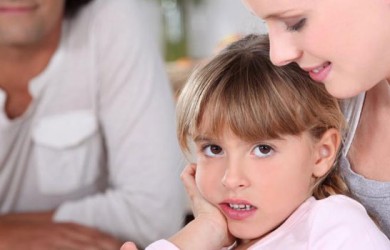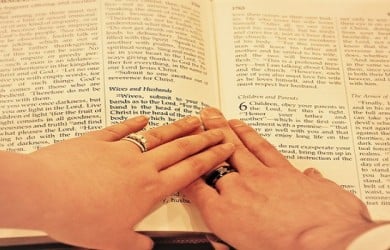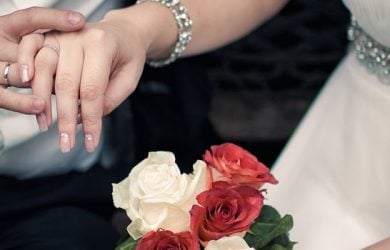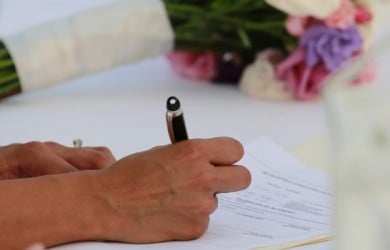How to Heal From Childhood Traumas Before Getting Married

 Listen to this article
Listen to this articleI married a mentally ill man. The realization came after the wedding, on a rainy interstate as he pounded the steering wheel in a rage, literally taking our lives into his hands. At ninety miles an hour, you get some perspective. Why the hell had I married this maniac? A decade later, I know the answer: I married my childhood wounds. And this is what we do. We seek to heal the wounds of our childhood by dating and marrying them. That’s why, before setting out to find our soulmate, we need to heal ourselves.
We didn’t live together before we married, but the signs were there. He had raged on a smaller scale. I realize now that this behavior, which would have been a red flag to a “normal” person, wasn’t for me. Why? Because in my experience, rage was the fodder of family get–togethers. The night after our wedding, my cousin broke my uncle’s nose. When my new husband and I brought ice to my uncle, my aunt announced: “Welcome to our happy family!” Humor was our collective coping mechanism. At another aunt’s fortieth birthday, someone walked around with a tray, asking jokingly if anyone would like a “coffee, tea, antidepressant?
We marry our childhood wounds!
The psychological phenomenon for why we marry our childhood wounds lies In “attachment theory and unconscious mental models…our earliest relationships…not only influence how we are able to connect to others as adults—in romantic and other contexts—but also create internalized scripts or working models of how relationships work…As human beings, we are drawn, on an unconscious level, toward the familiar. For a securely attached individual whose primary connections taught her that people are loving, dependable, and trustworthy, this is just dandy. But for those of us who are insecurely attached, the familiar can be dangerous territory.”
Familiar territory can be dangerous
The familiar was certainly dangerous for me. After my epiphany on the interstate, I gave my husband an ultimatum: get help or get lost. Eventually, with the right diagnosis (Bipolar II), medication, therapy, and holistic healing, he got better. But it doesn’t always work out this way. Two key factors in healing are self-awareness and motivation, both of which my husband had. The ultimatum was the tipping point, but he knew he was a mess, and he was tired of being miserable. Thankfully, he was able to heal, and we now enjoy a strong marriage built on a decade of supporting each other through life’s ups and downs. But we could all save ourselves so much suffering if, instead of attempting to heal ourselves by marrying our wounds, we first healed them by other means.
So how do we heal?
Truly healing from trauma requires a two-pronged approach. Traditional therapy is crucial to helping us identify what our issues are and the connections between our childhood wounds and unconscious behaviors. However, it’s not enough. Ever known someone who’s been seeing a shrink for decades without much improvement? That’s because trauma has an energy to it, and we carry that energy within us, mainly in our chakras, until we clear it. Childhood trauma is stored in our first three chakras: the root, sacral, and solar plexus.
Getting the energy from the trauma out of your system
Until that energy is healed, it continues to fuel our unconscious behaviors and causes anxiety, an inability to know ourselves, and a lack of self-confidence (respectively). To clear this energy, we need energy therapy. Acupuncture, emotional freedom technique, and Reiki, just to name a few, all seek to balance our energy and/or remove energy blockages. When looking for a therapist, choose one that has at least a dozen good reviews as well as a Google business listing and/or social media presence. This ensures that they cannot filter out negative reviews.
Once we heal our wounds, we can enter into relationships and are able to spot red flags. And then, we can consciously go about choosing a partner who will mirror our healed selves. It’s key to remember that we’re not just doing this for ourselves, but also for any future children we may have. While “happily ever after” may be the perfect ending for fairy tales, breaking the cycle of dysfunction is the beginning of a reality that we can all achieve.
 Tips
Tips
Write your tip or submit a video tip
All tips are reviewed before the publishing.
Share this article on
Planning to get married?
Just engaged or contemplating marriage? Discover how to transition smoothly into the next phase of your relationship with Marriage.com's Pre-Marriage Course. Begin your incredible journey with this guide designed by experts and lay a strong foundation for your path of togetherness - forever!

























 We'd love your feedback!
We'd love your feedback! Thanks for your feedback!
Thanks for your feedback!
